Missouri House Democrats spoke to reporters after the close of legislative work for the week:
Tag: Ashley Aune
VIDEOS: Republicans’ and Democrats’ end of the week media conferences
Missouri House Republicans and Democrats spoke to the media and fielded questions before legislators went home for the weekend:
VIDEO: House Democrats press conference
House Democrats spoke to the media and fielded their questions after the close of business on Thursday.
House approves ‘No Patient Left Alone Act’
The House has approved the easing of restrictions on visitors in hospitals and nursing homes such as those experienced during the COVID-19 pandemic.
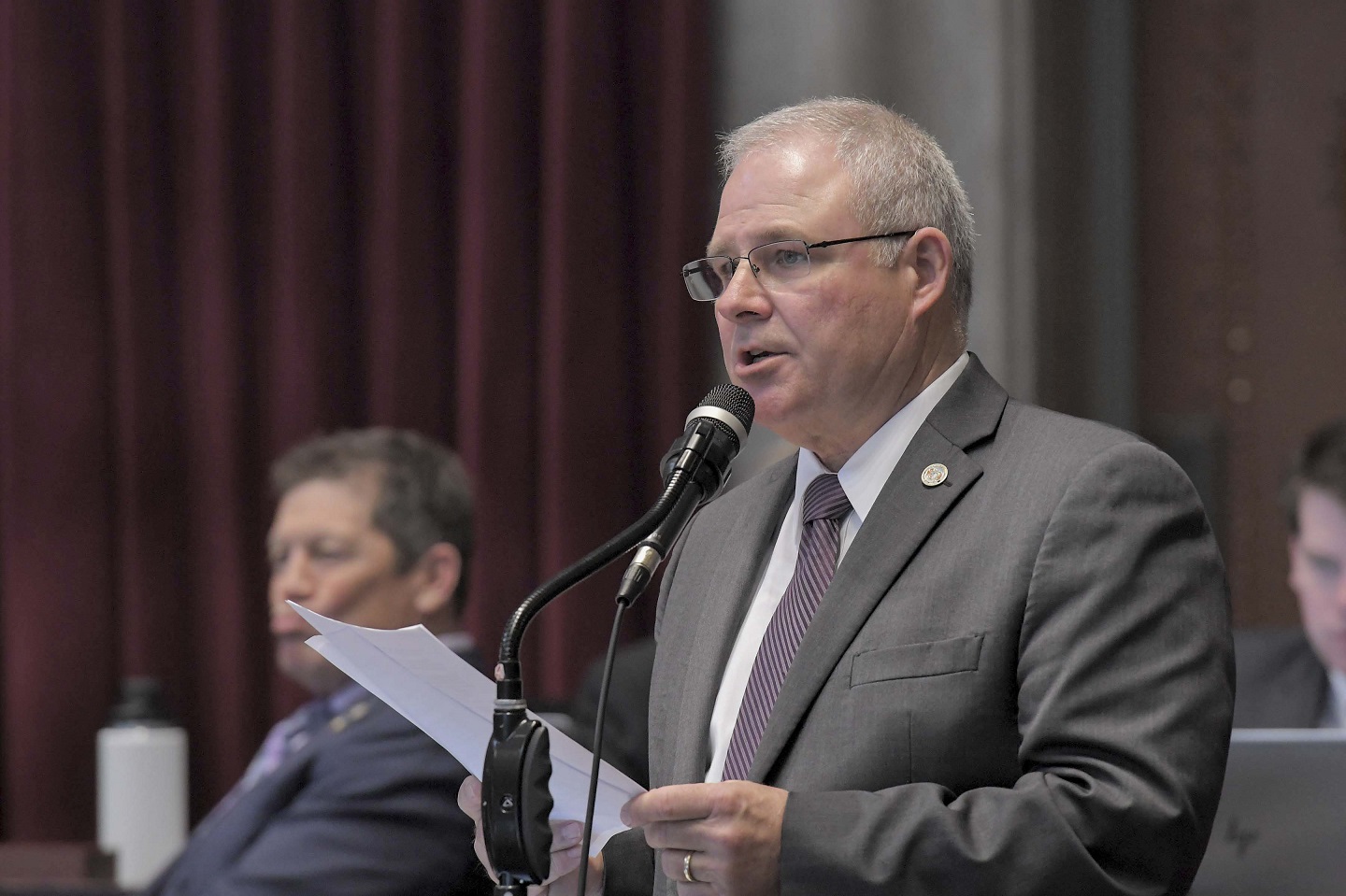
Representatives who backed the proposal cited instances of Missourians going for days or more and even dying without loved ones being allowed to see them. Opponents said it should be up to facilities how best to place restrictions for the good of patients and residents.
Called the “No Patient Left Alone Act,” House Bill 2116 was the combination of four pieces of legislation. The sponsor of HB 2116 is Chillicothe Republican Rusty Black.
The plan drew an impassioned speech from Majority Floor Leader Dean Plocher (R-St. Louis) who spoke about his late father-in-law’s stay in a hospital that lasted more than 20 days, during most of which he was not allowed visitors. Plocher said for much of this his family was not updated on his condition; his call light was not answered, and they were denied an explanation on the administering of unusual medications. He complained of improper care and was at one point found to have a fork embedded in his skin and to be suffering from mouth sores.
He said what happened to his father-in-law in the days before his death was not unique.
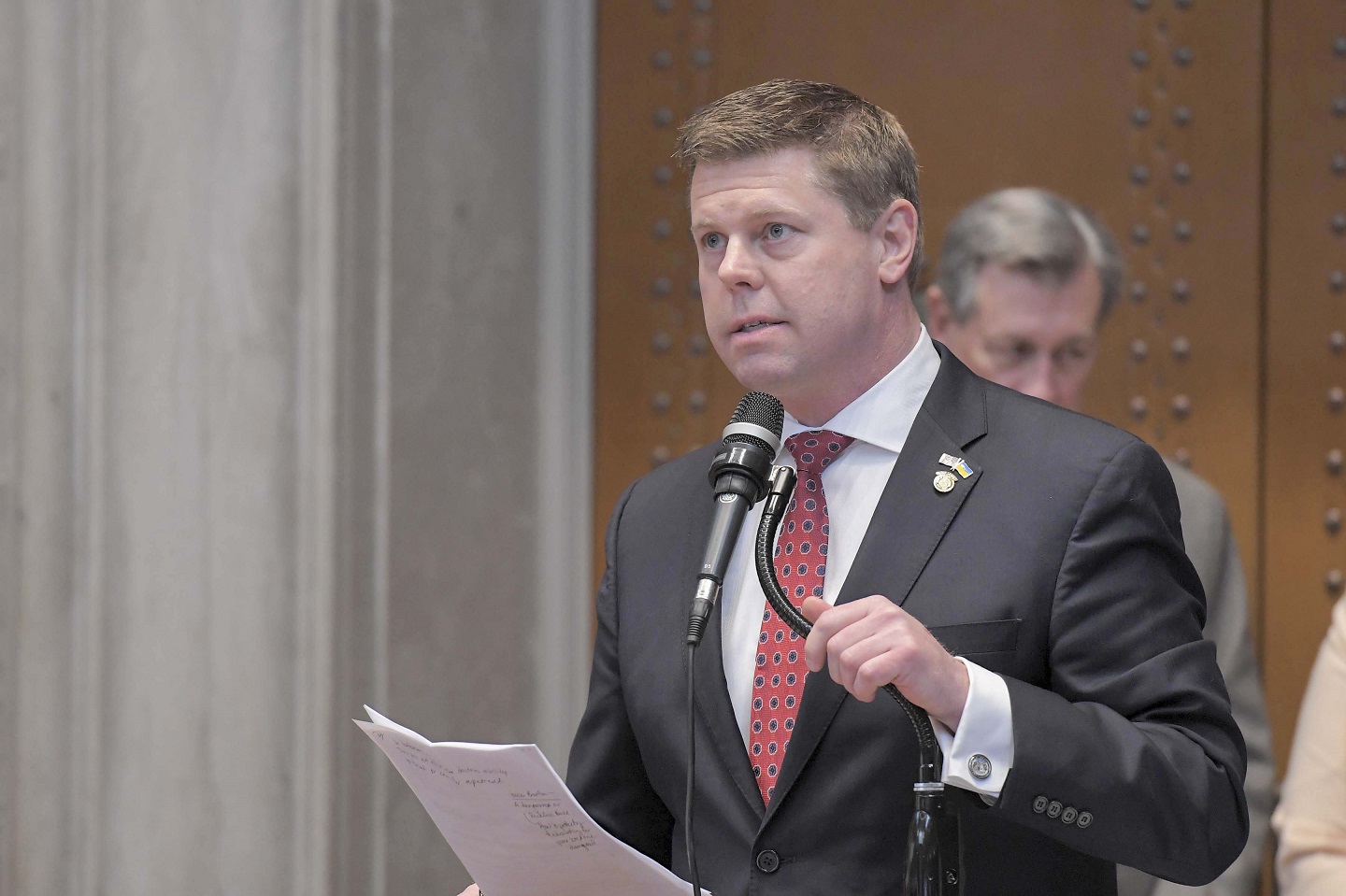
“Health care facilities were allowed to arbitrarily set rules for visitation all while staff could come and go on a daily basis, and I guess they could, in fact, bring in viruses too. Health care facilities essentially became prisons for our loved ones. People were admitted. One day you could have visitors, the next day you couldn’t. People were confined without access to an advocate from those that knew them. It was arbitrary and there was no recourse if you were locked away by a health care facility without access to visitors,” said Plocher. “This bill protects all Missourians and all of our loved ones. This bill is necessary and should be a right for of those receiving care, to have a visitor and an advocate by their side.”
Several Republicans called the legislation perhaps the most important bill they could handle this year.
“I truly believe that this bill will prevent a loss of life in many situations,” said Neosho representative Ben Baker (R), who chaired the committee that handled HB 2116. “When you are in that situation where you have no one to turn to, no one that you know, no one that you have that personal relationship with, it’s extremely important for the mental well-being, the physical well-being of those patients in those situations to have that. I can’t imagine what it would be like if I was in that situation where I had no one to advocate for me.”
Some Democrats spoke against the measure saying health care facilities should be able to determine what practices are the safest for their staff and those in their care, particularly during a pandemic.
“We all have rights and we all have freedoms and while your loved one is potentially needing support in one room, somebody else’s loved one is down the hall and they don’t need to be exposed to whatever it is that folks are bringing into that care facility,” said Representative Ashley Aune (D-Kansas City).
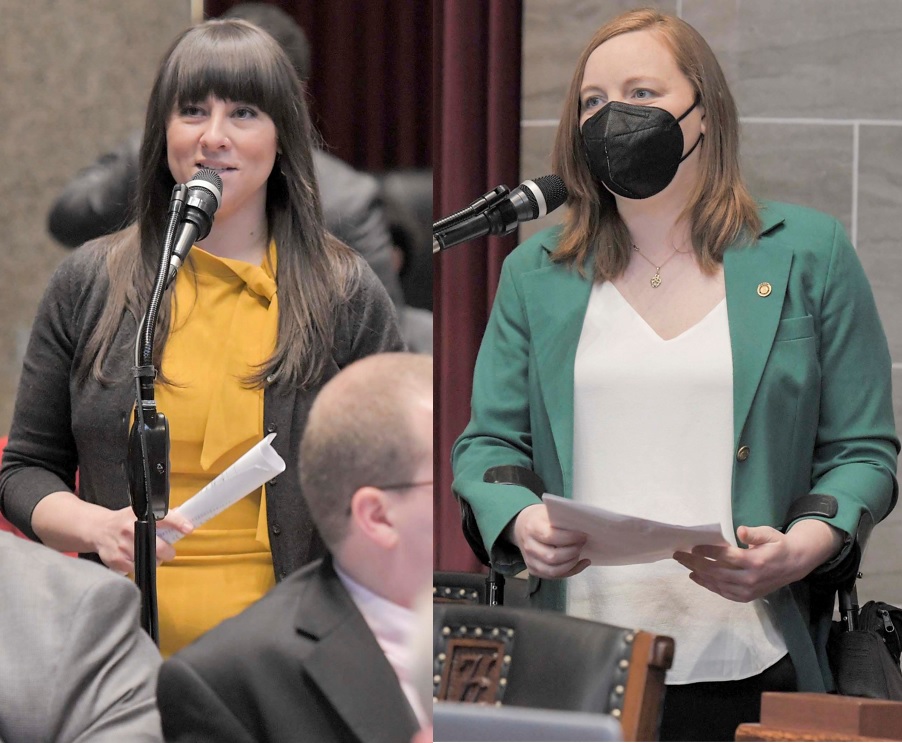
“I can respect this is a horrible situation. It was a horrible situation we were put in. No one wants to keep family members from their loved ones in the hospital when they are sick. No one wants to do that, but a lot of times it’s what has to be done,” said Representative Bridget Walsh Moore.
“We all have high emotions about not being able to be with our loved ones at the end of their life , but I’m wondering if the policy, the legislation … takes the work and takes the authority, really, away from the people who are closest to the situation, working with their patients, to make a determination as to how safe, or not, it is for others to come in when people are sick,” said Representative Yolanda Young (D-Kansas City).
Republicans maintained that they worked with health care industry representatives in creating a bill that would answer their concerns while not jeopardizing safety in health care facilities.
“It’s done in a very prudent way. It does not open up visitation in a free-for-all manner. It’s thoughtful to where there’s only a handful of people that can get in off of a list and only a couple at a time, the facility can screen those folks, and so we can have the best of both worlds. We can have the safety that’s required but we can also have those visitation rights that is so important to the folks who need us to come in to hold their hand, to be with them, to help them with their mental health and physical health by being there for them in person,” said Representative J. Eggleston (R-Maysville).
The bill specifies that a patient’s list of visitors would include a spouse, or parents or guardians in the case of a child. Facilities could still deny access to patients under specified circumstances including at the request of the patient or law enforcement; when a person has signs and symptoms of a transmissible infection; or when the attending physician believes the presence of visitors would be detrimental to the patient. The bill’s provisions do not grant visitors access to restricted areas like operating rooms or behavioral health units.
The House voted 120-27 to send the bill to the Senate.
House panel advances restitution for all Missouri exonerees
Anyone exonerated of a crime in Missouri would be eligible for restitution under a plan that has been advanced by a House committee.
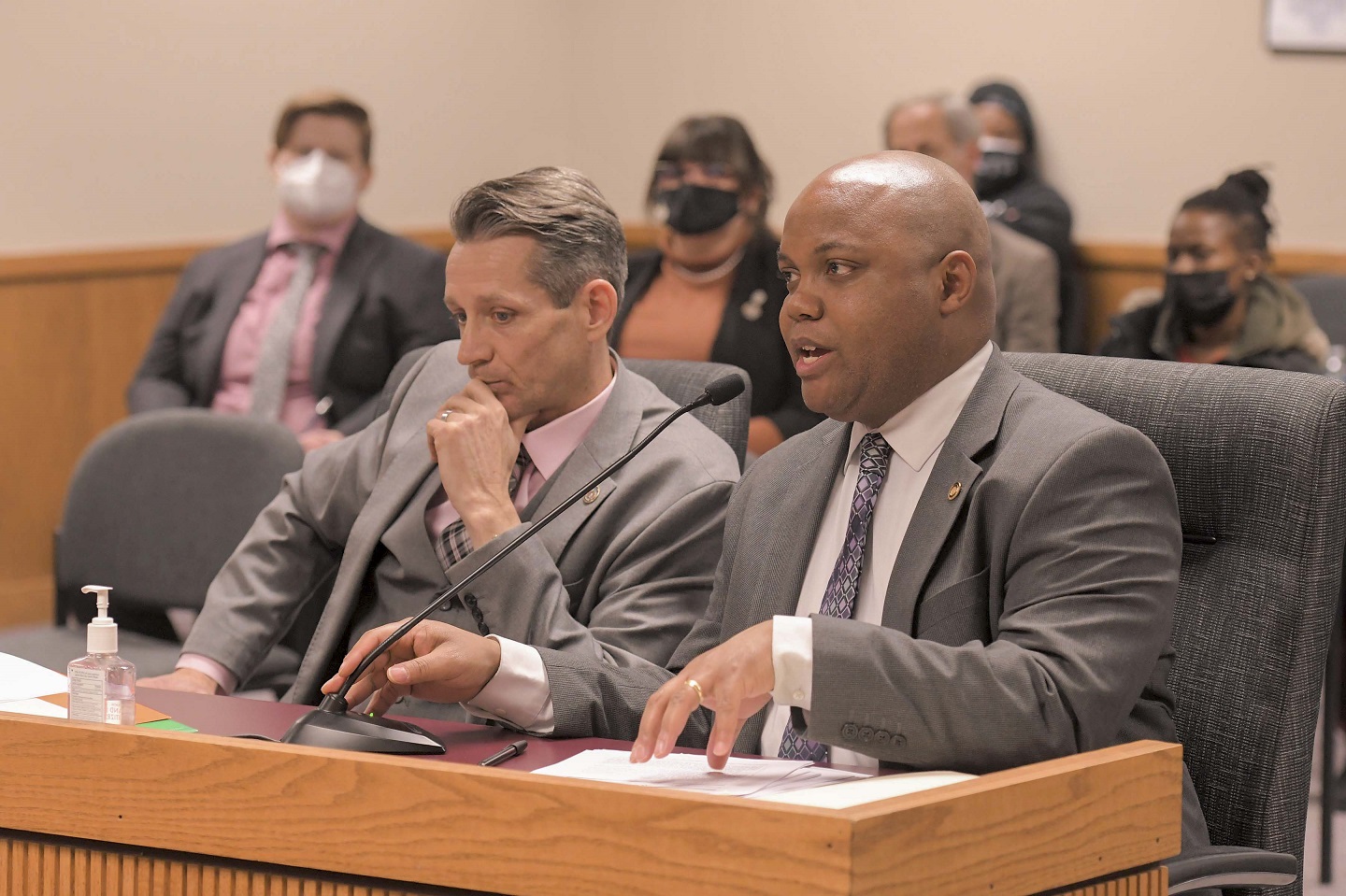
Missouri law allows anyone freed from prison based on DNA evidence to receive restitution. House Bills 2412 and 2474 would allow those exonerated by any other proof to receive up to $100 a day, up to $36,500 per fiscal year.
The bills are sponsored by Representatives Shamed Dogan (R-Ballwin) and Ron Hicks (R-Defiance).
“The bottom line to legislation like this is correcting what we’ve done wrong. As a society, we put people away. We’ve incarcerated them for years … and then we release them with nothing,” said Hicks. “We’re not returning them to the way they were when we incarcerated them. We’re not making them whole again … and when I mean ‘whole again,’ that’s vaguely used because you’ll never make someone whole again once you’ve taken their life away from them and then you hand it back.”
Missouri’s restitution statute drew attention following the release late last year of Kevin Strickland, who spent 42 years in prison for a crime of which he was cleared but not by DNA evidence.
Many members expressed support for the proposal, but brought up things they’d like to see added.
Kansas City Democrat Ashley Aune said she wants to see an addition to the bill to ensure exonerees are provided with assistance upon release, in areas like housing and healthcare.
“There’s a program now for someone that is released and has committed a crime,” Hicks noted.
“Exactly,” Aune agreed. “Missouri cannot be a state that treats its parolees better than its exonerees. It cannot.”
Columbia representative David Smith (D) was the only vote against the bill. He opposed it because it would prohibit exonerees from taking the state to court if they receive restitution under this plan.
Smith suggested allowing exonerees to sue the state and subtracting any resulting settlement from the amount they receive in restitution.
Supporters of the bill include the Missouri Chapter of the NAACP, whose president, Nimrod Chapel, enthusiastically said the bill, “may not be perfect, but it is a damn site better than where we have been.”
Another organization offering support is the Missouri Association of Prosecuting Attorneys. Cole County prosecutor Locke Thompson said, “As prosecutors we work with people daily, usually victims of crimes, trying to make them whole after they’ve been victimized. It seems only right that when something as awful as a wrongful conviction happens and we have an actually innocent person in that we make amends to try and make those individuals whole as well.”
The bills, which have identical language, would also require that an exoneree automatically receive an order of expungement.
The committee voted 13-1 to send HB 2474 to another committee. From there it could go to the full House.
House logs 372 proposals on first day of filing for 2022 session
Wednesday at the Missouri Capitol there was a sense of new energy in the air. Christmas decorations were going up, the weather was that of a spring day, and most of all, new bills were dropping everywhere. December 1 is a day when Missourians get a first look at what legislators will consider as the filing of bills for the 2022 legislative session began.
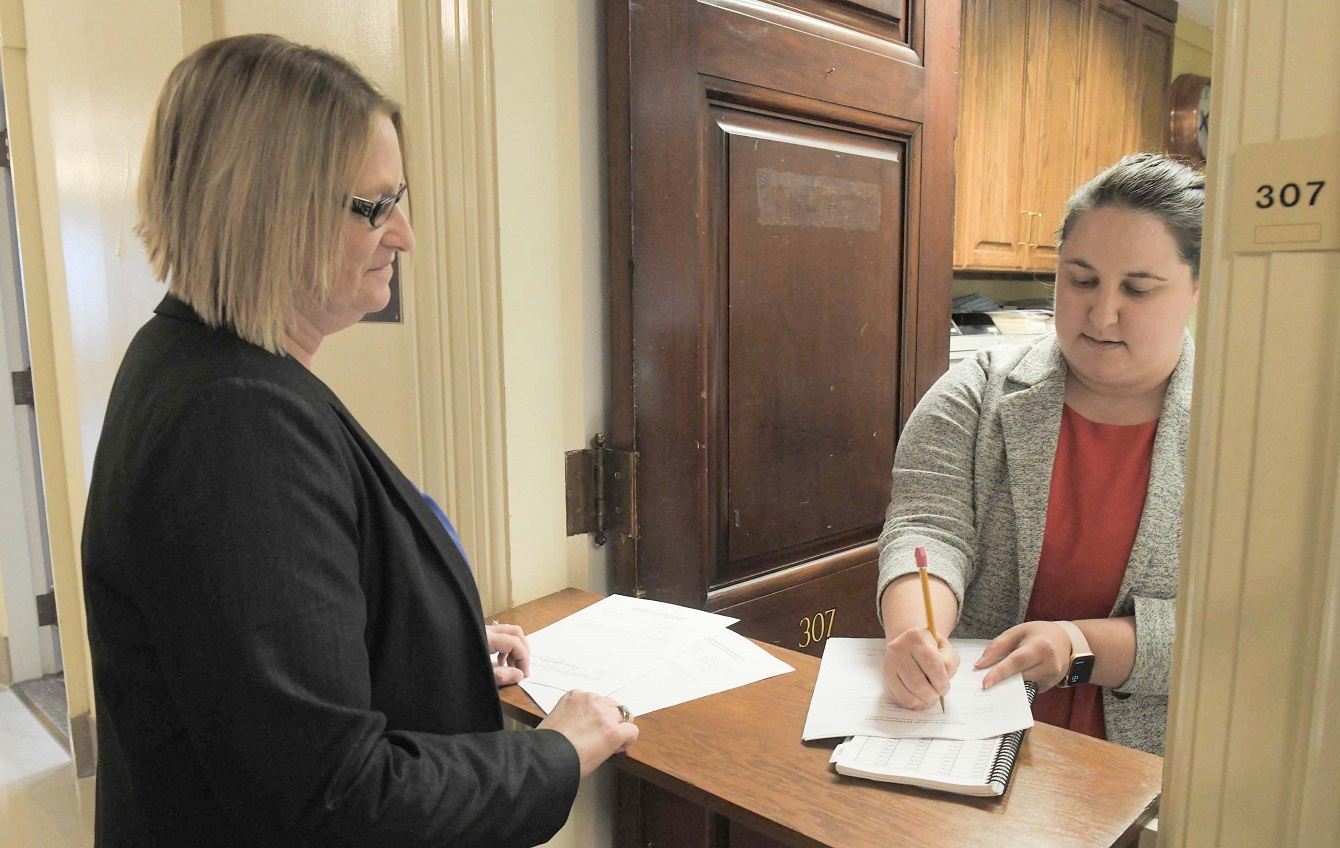
“Prefiling day is basically a holiday if you’re an elected official down here in Jefferson City. It’s a good day to be back in the building, it’s exciting. You can kind of feel in the air that it’s almost time to get back into the swing of things,” said Representative Mark Sharp (D-Kansas City).
Farmington Republican Dale Wright said it’s often better for legislation to be filed early, as that can give it a better chance of gaining traction early in the session and a better chance at passage. That means a lot of proposals are brought in on day 1.
Click here to view the bills filed in the House for the 2022 legislative session.
For some legislators there is some strategy involved in whether they want to put a proposal forward sooner or later.
“I’ve spoken to other members that believe if they prefile something it gives the opposition a month to work on attacking that bill,” said Representative Nick Schroer (R-O’Fallon). “I’m one that’s fully transparent. People know what I’m going to file, they know where I stand on issues, and give them an extra month, I don’t care. I just think that voters and the constituents need to know what work is being done in the interim, what work is going to be done in 2022.”
Wright said Missourians should know that it’s a hectic day in the Capitol.
Prefiling can feel very different for House Democrats, who face a supermajority of Republicans. Kansas City Democrat Ashley Aune said even when proposing legislation they know will be opposed, members of her caucus can be serving a purpose. She said one piece of advice she has held onto came from fellow Representative Tracy McCreery (D-St. Louis).
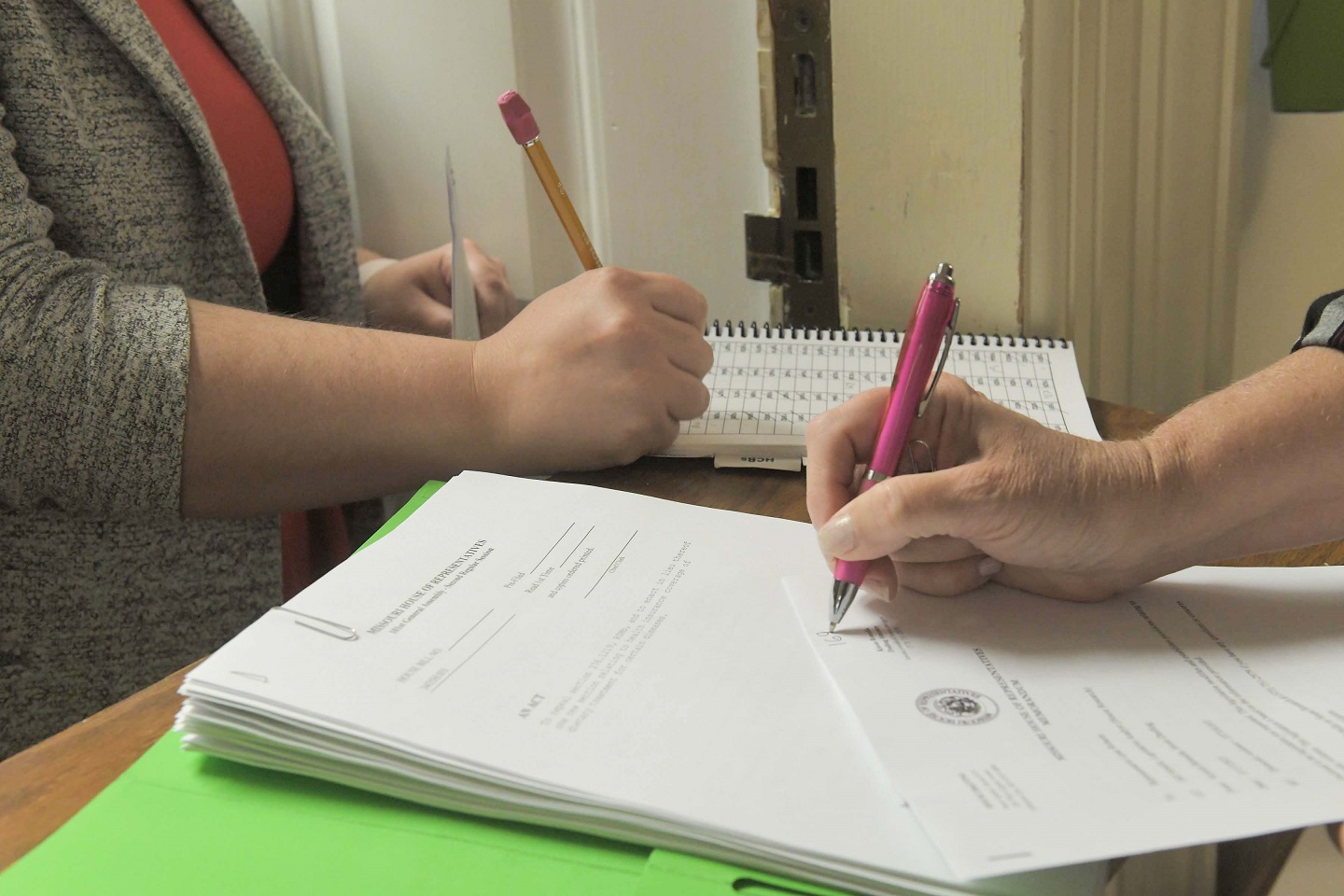
Sharp said the enthusiasm of filing day is encouraging, but it’s also a reminder to be thoughtful in what is filed.
Joplin Representative Lane Roberts (R) said he believes it’s important for each legislator to give consideration to not only their own bills, but what others are filing, and that includes those in the opposing party.
“The fact is that that there’s an awful lot of people on that floor who are sincere. They want to do the right thing, and when they file bills it’s because they believe that it has some meaning. Some, maybe more than others, but none of it is meaningless, and whether you’re one side of the aisle or the other, I’ve found that people on the opposite side of the aisle from me sometimes say very smart things,” said Roberts. “Listening to folks who are presenting the bill, listening to what they have to say, it’s changed my mind a time or two. It has overcome some preconceived notions that while I may not intended to have it, it just happened.”
On Wednesday in the House, 372 measures were filed for the 2022 session. The session begins January 5.